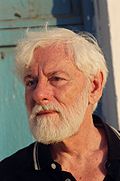Since the founding of the state, 90 years ago, the word "crisis" has been inseparably linked with its name.
From the Israeli perspective, this crisis has a double significance.
First, it endangers the quiet on the Northern border. Every internal crisis in Lebanon can easily lead to a conflagration. Somebody in Lebanon may trigger a confrontation in order to divert attention from internal matters. Somebody in Israel may decide that this is a good opportunity for advancing some Israeli scheme.
Lebanon War III, if it breaks out -- God forbid! -- threatens untold destruction on both sides. Lebanon War II will look, in comparison, like a picnic. This time, all Israeli towns and villages will be within range of Hezbollah's rockets. During the big Carmel fire, a few weeks ago, it became clear that nothing has been prepared for the defense of the rear, besides an impressive arsenal of speeches and declarations.
But this Lebanese crisis is also significant on quite another level. It holds an important lesson concerning the existential question facing us now: Israel in its 1967 borders or a Greater Israel that will rule over all the land between the Mediterranean and the Jordan.
The Lebanese crisis calls out to us: Look, you have been warned!
THE LEBANESE malaise started with a crucial decision made on the very day the state was set up.
In Arab eyes, Lebanon is a part of Syria. Greater Syria -- al-Sham in Arabic -- includes the present state of Syria as well as Lebanon, Palestine, Jordan and Sinai. This is a basic tenet of modern Arab nationalism.
During the hundreds of years of Ottoman rule in the region, there were no real borders between these provinces. The administrative divisions changed from time to time, but were unimportant. One could travel from Haifa to Damascus or from Jerusalem to Beirut without encountering any problem.
Lebanon is a country of high mountain ranges, one of the most beautiful countries in the world. This topographical reality encouraged persecuted minorities from all over the region to look for refuge there. They established themselves between the mountains, organized for all-round defense, fiercely resolved to hold on to their special character. The very tolerant Ottoman rule gave each community far-reaching autonomy (the "millet" system).
Thus the Druze established themselves in the Chouf mountains, the Christian Maronite sect in the Central Mountains and the Shiites in the South. Next to them there were other Christian communities (mainly Greek Orthodox and Greek Catholics) and the Sunni Muslims. These last were concentrated mainly in the coastal towns -- Tripoli, Beirut and Sidon -- and not by accident. The (Sunni) Ottomans put them there as guardians of their empire in face of all these diverse communities.
THE HISTORIC change in the annals of Lebanon occurred in 1860. Until then, the two main communities -- the Maronites and the Druze -- lived in strained co-existence. There were many clashes between them, and for some time, Druze princes established something resembling a mini-state in the region, but the relations between them were tolerable.
In 1860 the local conflicts escalated disastrously, and the Druze massacred the Christians. The Jews, too, were in danger, and the British Jew, Moses Montefiore, rushed to their aid in his coach. The world was shocked -- that was a time when the world was still shocked by massacres -- and the situation was exploited by the French, who had always cast covetous eyes on the "Levant." The Istanbul government was compelled to recognize them as protector of the Christians in Lebanon. In order to defend the Christians, the Lebanese mountains were given an autonomous status within the Ottoman Empire, under French protection.
With the collapse of the Ottoman Empire at the end of World War I, the region was divided between the two victorious powers -- Great Britain and France. In a cynical betrayal of their declared aim ("national self-determination") the French took hold of Syria (including Lebanon), while the British took possession of Palestine, Transjordan and Iraq. The Arabs were not consulted. When Emir Faisal (the brother of Abdallah) set up a Syrian kingdom in Damascus, he was brutally thrown out by the French. A later national Arab revolt against the French, led curiously enough by the Druze, was put down with great cruelty.
The Muslims, who constituted the overwhelming majority in united Syria, hated the French conquerors and continued to hate them until the last day of their rule in Syria, when the British evicted them in the course of World War II (with the help of the "illegal" Jewish forces in Palestine. It was in this campaign that Moshe Dayan lost his eye and gained his trademark eye patch.)
THE MAIN aim of French rule from its first day was to turn the Lebanon mountains into a solid French dominion, based on the Christian population. They decided to cut Lebanon off from Syria and turn it into a separate state. This separation aroused a huge storm among the Muslims, but without effect.
(Note: You can view every article as one long page if you sign up as an Advocate Member, or higher).





